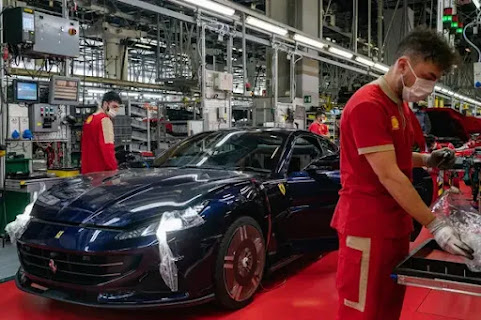The dystopian response to a dystopian novel : Imagine a world in which all the men disappear from the planet in a single moment :
Planes they were piloting are left unmanned [literally], their female passengers abandoned in midair ; men in bed mysteriously vanish; boys in the playground dematerialize before their mothers' eyes.
The girls and women left behind are given no apparent reason for the sudden absence of half the world's population.
NOW imagine another world - one in which an author proudly announces her forthcoming novel only to be attacked online for its fantastical premise.
Months before the book comes out, it is described on Goodreads as a ''transphobic, racist, ableist/misogynist nightmare of a book.''
On Twitter, people who have yet to read the novel declare that it's their responsibility to ''deplatform'' it.
When one of the author's friends, herself a writer, defends the book, she is similarly attacked, and a prominent literary organization withdraws her nomination for a prize of her own book.
ONLY one of these nightmare scenarios is real.
The first describes the premise of a novel that comes out this week : ''The Men'' by Sandra Newman. The second is what actually happened when the premise of Newman's book was revealed.
''The Men'' is hardly the first novel to imagine a world populated solely by women. It was inspired by feminist utopian fiction like Joanna Russ's 1975 book, '' The Female Man '' and ''Her-land,'' a 1915 novel by Charlotte Perkins Gilman, both of which explore this theme.
More recently, fiction has turned to dystopian versions of a world without men, with novels such as last year's ''The End of Men'' by Christina Aseeney-Baird, in which the virus is responsible for wiping out half the population.
For all the outlandishness of its conceits, science fiction can allow writers and readers access to deeper truths about very real aspects of society, politics and power in creative ways. But apparently Newman got too creative -or too real- for some.
What a sour irony that a dystopian fantasy brought a dark reality one step closer. In this frightful new world, books are maligned in hasty tweets, without even having been read, because of perceived thought crimes on the part of the author.
Small but determined interest groups can gather gale force online and unleash scurrilous attacks on ideas they disapprove of or fear, and condemn as too dangerous even to explore.
''I wanted to create a parable of exclusion,'' Newman, who describes herself as nonbinary, said in a phone interview. ''It's a book about ''othering,'' the human tendency to divide people into categories or groups and to think of our group as the real people and other groups as threats to the real people.''
Newman said she tends to favor fiction that explores difficult ideas in bold ways : ''People shouldn't always write nice books.'' Where better than literature to examine ideas that may unsettle or challenge?
Most people don't want to live in a world in which books are vilified without being read and their authors attacked ad hominem for the temerity of having written them.
There is an answer to attacks like these : Read the book.
The World Students Society thanks review author Pamela Paul.

.png)


